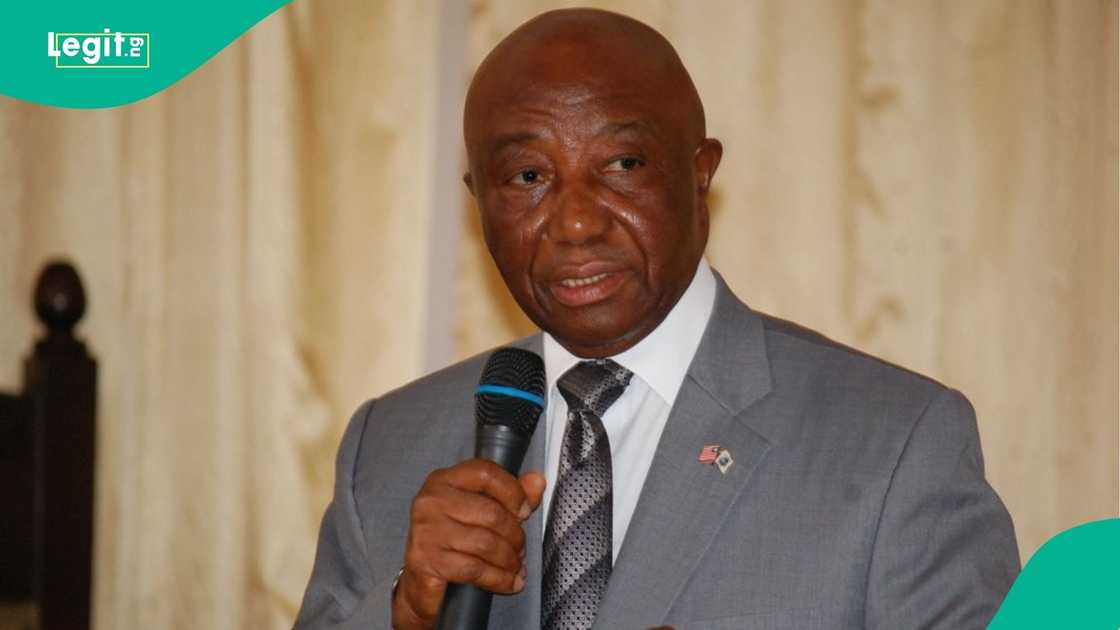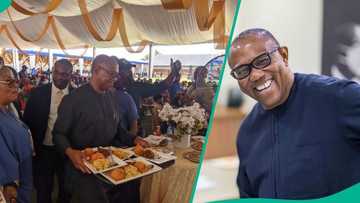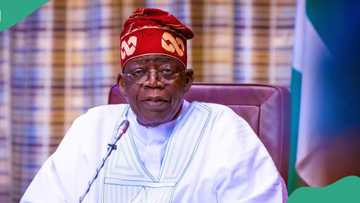Africa’s Dignity and the Diplomacy of Subtle Disrespect, by Titilope Tawakkaltu Anifowoshe
Editor’s note: In this piece, Titilope Tawakkaltu Anifowoshe challenges the hidden biases in diplomatic language, using Trump’s remark to Liberia’s President Boakai to question how global politics continues to underestimate African intellect and leadership under the guise of polite praise.
Don't miss out! Join Legit.ng's Sports News channel on WhatsApp now!
In an increasingly interconnected world where global diplomacy dances between strategy and symbolism, language has never been neutral. Yesterday, the President of the United States of America, Donald Trump, aged 79, tossed a “compliment” at Liberia’s President Joseph Boakai, who is 80 years of age: “Where did you learn to speak so beautifully?”

Source: Twitter
At face value, the remark may have appeared complimentary. But beneath the surface, it echoed a long-standing condescension towards African competence; the kind that masquerades as praise while quietly revealing a silent edging discomfort that excellence, intellect, and eloquence can be native to African soil.
This kind of praise is not new. It is the sort of thing masked as flattery but reeking of that old-school disbelief that an African president can actually string a sentence together? Shocking! It is the same tired surprise at African competence, as if intellectualism and eloquence are rare imports here instead of homegrown traits.
President Joseph Nyuma Boakai is not just any random leader. He was previously the Vice President of Liberia from 2006 to 2018 under legendary Madam Ellen John Sirleaf. He currently leads Liberia, a country built by freed African-Americans in the 19th century, with English as the official language and a constitution modeled after the United States of America. To express surprise at his fluency in English is to disregard Liberia’s distinct historical trajectory and, by extension, to question the intellectual default of African leadership.
Such remarks are not unfamiliar. They fall under what scholars call “benevolent microaggressions”, subtle slights dressed as flattery. When Western figures marvel at the speech, competence, or composure of African leaders, it often exposes not admiration but a misplaced astonishment that brilliance can emerge outside the familiar corridors of the West.
This recurring pattern becomes even more concerning when viewed alongside Trump’s more recent geopolitical signals. In a clear diplomatic rebuke, he slammed a 10% tariff on Nigerian goods and moved to reduce Nigerians to single-entry three-month visa stay. These measures, many analysts believe, are tied to Nigeria’s growing alignment with BRICS, the emerging economic bloc of Brazil, Russia, India, China, and South Africa which is a collective effort seen as a threat to US-led global dominance.

Source: Twitter
What emerges is a portrait of a deeply rooted discomfort: not with African failure, but with African self-determination.
Africa is cool as long as it plays along, buys what it is told, votes how it is told, and keeps the volume low. But the second African countries begin to chart bold, independent paths, whether through diplomatic realignment or economic ambition, the gloves come off. Suddenly, there are tariffs, visa roadblocks, and language, even in its most casual use, becomes a tool to reassert dominance.
The more critical concern lies not in Trump’s words, but in Africa’s reaction to them. Too often, there is laughter, shrugs, or even celebrations. I have seen folks from Boakai’s own Unity party cheering Trump’s “admiration.” This is where the danger deepens. Because what is repeatedly excused becomes systemically accepted.
Africa’s real challenge today is not linguistic. It is existential! It is about seriousness! Are we raising a generation of leaders whose legitimacy is measured by Western applause, or by the integrity of their institutions? Are our nations still seeking validation, or are we finally ready to assert value?
To be factual, fluency is not a measure of excellent leadership. It is not the same as running a country with vision and discipline. And respect is not earned through mimicry of foreign manners. Big kudos to President Boakai for his show of maturity and humility!
Africa must rise beyond the stage where our competence shocks the world. Let our fluency no longer be newsworthy. Let our innovations speak louder than our accents. Let our governance silence the need for applause.
At the end of the day, no foreign compliment, no matter how fancy it sounds, can replace the respect we owe ourselves. And no tariff or visa policy should shake a continent that actually knows its worth.
Titilope Anifowoshe is a lawyer and Ambassador of Politics With Value. She writes from Lagos, Nigeria. titilopeanny@gmail.com
Disclaimer: The views and opinions expressed here are those of the author and do not necessarily reflect the official policy or position of Legit.ng.
Source: Legit.ng

Ololade Olatimehin (Editorial Assistant) Olatimehin Ololade is a seasoned communications expert with over 7 years of experience, skilled in content creation, team leadership, and strategic communications, with a proven track record of success in driving engagement and growth. Spearheaded editorial operations, earning two promotions within 2 years (Giantability Media Network). Currently an Editorial Assistant at Legit.ng, covering experts' exclusive comments. Contact me at Olatimehin.ololade@corp.legit.ng or +234 802 533 3205.

Titilope Anifowoshe (Lawyer) Titilope Anifowoshe is a legal practitioner, author, and development consultant. She is an advocate of politics with values and SDGs. She is the Founder and Executive Director of Eagles Foundation for Humanity, COO, Citizens Hub and Co-Convener of For Citizens Alliance.




